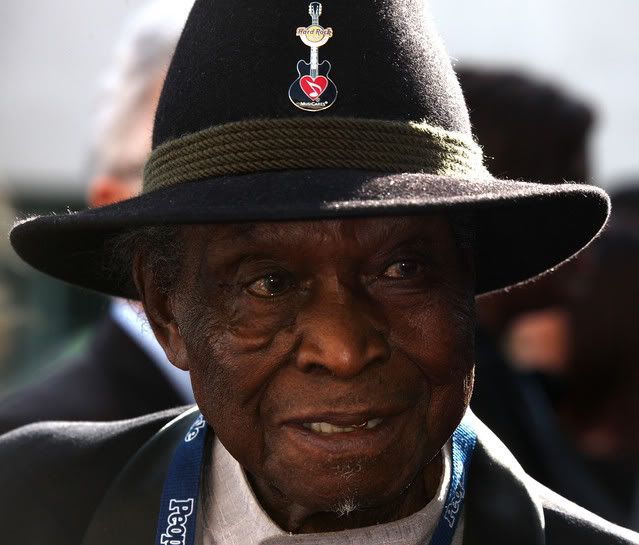George Orwell, call your office.
From the childlike [and not in a good way] Jay Carney's August 29th press briefing:
Q When will the President go visit any of the areas that have been hit by the hurricane?
MR. CARNEY: Ann, I don't have a scheduling announcement for you at this point. I don't have an announcement of that nature to make.
Q And he put out a statement on Katrina six years later. Does he feel that the federal government is significantly better in its reaction now than it was six years ago?
MR. CARNEY: Well, I think Administrator Fugate addressed that and addressed it from firsthand experience, and I think his answer was, yes, basically.
Q But President Obama, particularly -- does he feel that on his watch -- yesterday he said he took -- if you need something, tell me about it. Does he really think that the federal government is in a keener position?
MR. CARNEY: He thinks that his administration has from day one tried to be proactively responsive in the case of national disasters like hurricanes, floods, tornados, and that that posture has been the right one to take. Others will judge whether or not FEMA's response, the federal government's response, has been adequate. We are certainly -- the President is making sure that all resources available, all aspects of the federal family, [Emphasis mine. F.G.] are focused on this, led by Administrator Fugate and, again, the assessments will be made by others. We have heard some positive ones, but as the President said yesterday and as Administrator Fugate made clear today, this is not over. There are still impacts to be felt in certain states and a lot of recovery to be done.
In case you think that was merely Carney being his sissified self, here it is again. It is really the oligarchs' subtle way of admitting that the people hate their government.
After all, who could hate a "family"?
“Since the end of last year's hurricane season, the Federal Emergency Management Agency and the
National Oceanic and Atmospheric Administration have been working with the nation's entire emergency management team to get ready for this year's hurricane season. That team includes
the entire federal family, [Emphasis mine. F.G.] state, local and tribal governments, the faith-based and non-profit communities, and the private sector.”
-- McClatchy Newspapers Op-Ed by Craig Fugate, administrator of the Federal Emergency Management Agency, and Jack Hayes, director of the National Weather Service
From Fox New:
American politicians have a gift for over learning the lessons of the immediate past, and the response to Hurricane Irene is a prime example.
Compared to the other major natural disasters of the year – the rash of cyclones that killed hundreds across the Southeast in April or the mile-wide tornado that killed 160 people in Joplin, Mo. on May 22 –Irene was a dud.
But the storm had all the makings of a catastrophe: large, slow-moving and pointed at the heart of the nation’s largest city. It was not hard to imagine that the low-lying central part of Manhattan would be swamped like New Orleans’ Lower Ninth Ward after Hurricane Katrina. Not only would there have been scores of lives lost, but the beating heart of America’s financial industry would have been stifled.
In the end, though, the storm was nothing like Katrina and the small number of dead and isolated property damage will be lamented now, but soon swept from the front pages. It takes a lot to hold the nation’s disaster fascination: ask the still-struggling folks in Alabama and Joplin.
But before Irene fizzled, the Obama White House wanted to make sure that Irene was no Katrina and that, in fact, the president and his aides would be seen in compassionate command of the situation.
Hence the introduction of what may be the most condescending euphemism for the national government in its long history of condescending euphemizing: “federal family.”
This new phrase was supposed to, Power Play supposes, make anxious East Coasters feel the love of a caring federal government -- tender squeeze from the Department of Homeland Security, a gentle embrace from the National Oceanic and Atmospheric Administration. The phrase was a centrally distributed talking point, appearing in op-eds, press releases and statements from across the administration.
No major hurricane had hit the U.S. mainland in the Obama era, and the “federal family” had obviously been saving up a lot of new approaches to differentiate itself from the clan under President George W. Bush.
President Obama, presumably the federal father, came home early from his vacation and addressed the nation on the progress of the storm daily. The agency heads, presumably the siblings of this caring network, fanned out to show intimate engagement with the subject, from sandbagging procedures to storm tracking.
Meanwhile, Democrats were already pushing hard on the notion that Republican spendthrifts had crippled federal disaster preparedness, laying the predicate for pinning the blame for the disaster on the Tea Party movement. When the worst came, the president’s allies wanted to make sure everyone knew who was trying to break up the federal family.
It’s easy to say today, in hindsight, that the administration and its allies over-hyped the storm. If the damage had been greater, the panicky preamble and blame placement would seem justified. But the Obama political team has undoubtedly been taught a lesson about political perception.
It’s much easier to score negative points against someone else than it is to add positive ones to your own tally.
The president made attacking the Bush administration’s handling of Katrina a big part of his rise to power. Obama frequently used the storm and its aftermath to highlight the differences between himself and the man who is now his predecessor. This was a useful strategy because it plugged into one of the dominant narratives of the time: that Katrina was a domestic Iraq, a place where the president allowed people to suffer and die because of his own indifference or stupidity.
While Bush himself would later lament holding back a federal intervention in New Orleans, the largest part of the tragedy of Katrina came because of poor planning, poor preparedness and the sunken geography of the poorest parts of New Orleans. But the establishment press narrative fit fabulously and helped consign the GOP to two massive electoral defeats.
Obama called Irene an “historic storm” on Friday, but she will be all but forgotten soon enough. Katrina, conversely, brewed and churned in just the wrong way to suddenly swamp New Orleans. Remember that Katrina crossed Florida with minimal damage and only became the monster storm of legend when it entered the Gulf of Mexico.
While Americans had days to watch and worry over Irene, Katrina had already been dismissed by many as just another tropical depression before she started sucking up warm Gulf water and picking up speed. It was a perfect disaster.
Irene’s long lead time and the untapped hurricane plans of the Obama administration caused overwrought phrases like “federal family” and for a general sense of anxious hovering. The potential for massive disaster and graphic memories of Katrina cause local leaders to follow suit and join their presidential papa.
(Power Play would suggest that any New Yorkers and New Jerseyans currently complaining about the dire warnings of their mayor or governor ask themselves this: Would they rather have Ray Nagin and Kathleen Blanco?)
It is in this way that campaigns shape governments. The way that Obama ran for office, in this case blasting Bush for Katrina, caused his organization to place an excess premium on hurricane preparedness and messaging.
Some of it may have been defensive, since Democrats came to realize the political potential of a disaster while using the tragedy against Bush, but most of it was probably juxtapositional: “We can do this because we are the party of government. The Republicans hate government and that kills people.”
But rather than having a chance to show how effectively the government party can unite the federal family to a common cause, the president’s team got all worked up for a storm that most Floridians wouldn’t have interrupted their canasta games for. That’s how it goes with natural disasters.
The political lesson, though, is one that the members of Team Obama seem to be constantly being taught: it’s a lot easier to run for president than it is to be one. As they watch Republican frontrunners Rick Perry and Mitt Romney take chunks out of the embattled president’s hide, they will continue to re-learn it.






